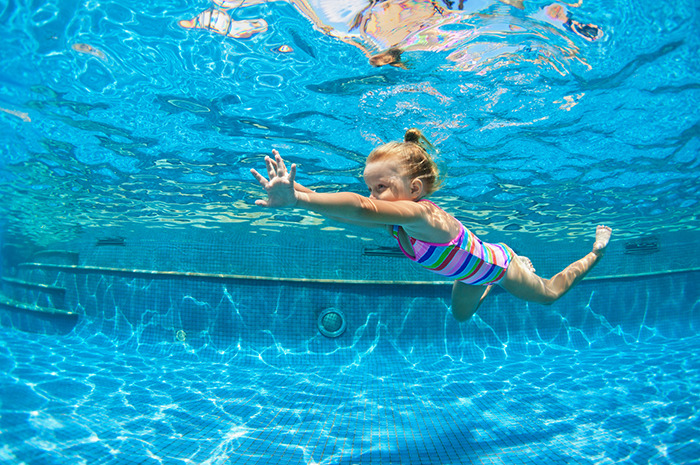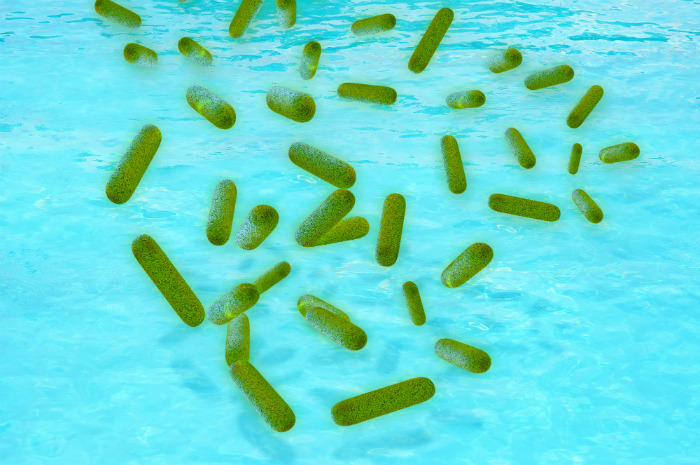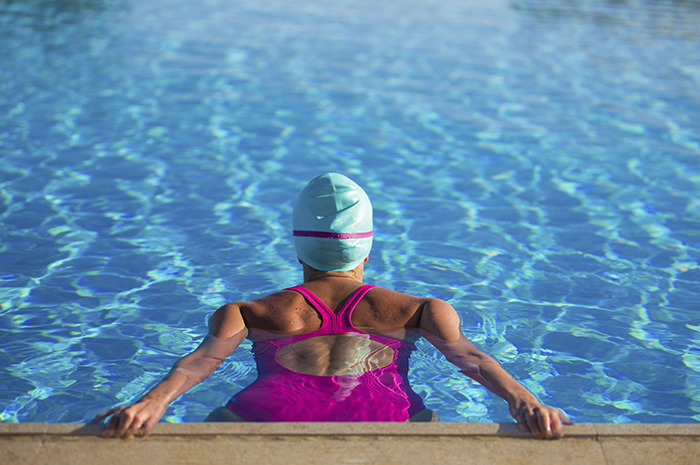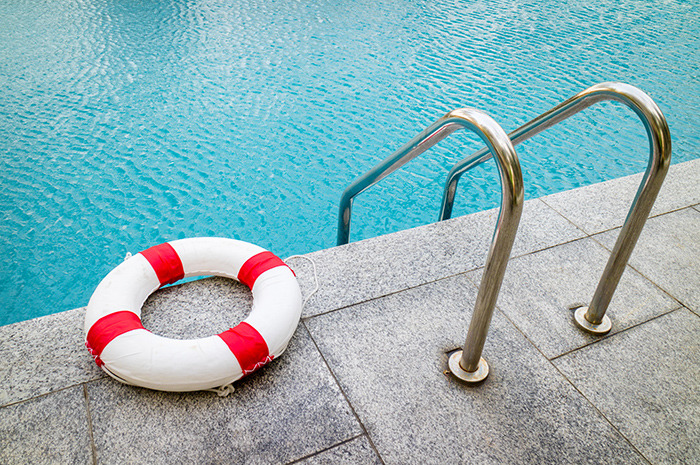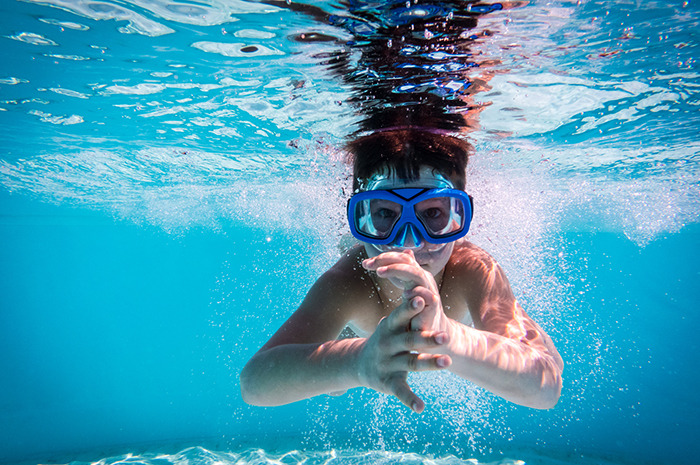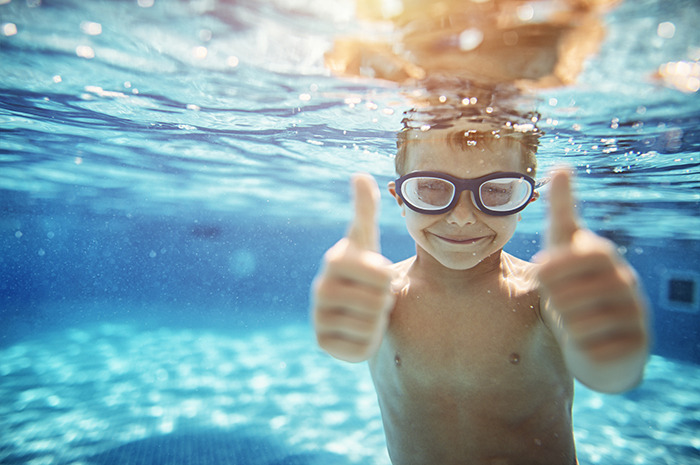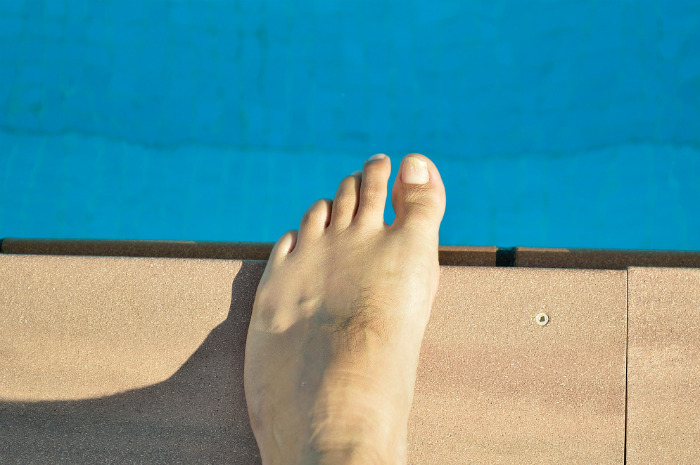Ways The Pool Can Make You Sick
Swimming in cool waters under a shining sun is a simple pleasure. Most people escape the heatby jumping in a pool. This is where a red flag is raised. They can be a breeding ground for bacteria. People bring all kinds of things with them into the pool.
Parasites
There were 220 parasite outbreaks (45 percent of all outbreaks) in pools, hot tubs and water playgrounds between 2000-2014, according to a report by the Centers for Disease Control and Prevention. Overall, hotel pools are the worst, accounting for 32 per cent of the outbreaks.
Bacteria
Different bacteria were the reason for 129 outbreaks in the same period. They are spread by swallowing, breathing in mists or aerosols of, or having contact with contaminated water in swimming pools.
Legionnaires’ disease
The bacterium that eventually causes the disease, a type of pneumonia, is found naturally in lakes and streams, but it can become a health concern when it grows and spreads in human-made building water systems such as hot tubs if they aren't cleaned properly. Symptoms include coughing, fever, chills, shortness of breath, and diarrhea.
Cryptosporidium or Crypto
Cryptosporidium (or Crypto for short) can live in properly treated water for up to 10 days; chlorine doesn't kill it right away. It is spread by swallowing contaminated water. Symptoms, which can last up to two weeks, include watery diarrhea, stomach cramps or pain, nausea, fever, vomiting, according to the CDC.
Poop – it’s inevitable
People have an average of 0.14 grams of poop on their bottoms, according to the CDC. This poop can wash off swimmers' bodies and can contaminate the water with germs. Formed fecal matter protects germs inside from being exposed to the chlorine, which can kill them. Microbes found in feces that can make you sick. You can theoretically even get Hepatitis A.
Urine
The urine creates trichloramine and cyanogen chloride, which are toxic chemicals. They have been linked to lung problems, according to a study, and cyanogen chloride can affect the heart and central nervous system. It's true that a lot of urine would have to be in the water for this to be a serious problem, but you never really know how many people and how often they've peed in the pool, do you?
Sweat
The problem is disinfection by-products (DBPs). Many of them, found in sweat, are considered toxic and you never really know to how many you are exposed in a public pool. Depending on water temperature and how active people are in the pool, they produce different amounts of sweat. Swimmers who skip the showers the pool may transfer personal care products into the water, which can accumulate.
Swimmer’s ear
If it's too humid outside, there may be some water residue in your ears that doesn't evaporate, leading to inflammation of the ear canal, which can then cause and irritating and painful infection. Make sure you dry the ear out; you can use vinegar or OTC drops.
Rashes
You smell the chlorine and think the pool you are about to swim in is clean. The truth is that the chlorine doesn't kill germs right away. This means that you can still be swimming and possibly swallowing dirty water. The microorganisms and chemicals come in contact with the skin, ears, and eyes, resulting in rashes, itching, redness and even diarrhea.
E. coli
E. coli is bacteria usually found in the human gut and feces. The bacteria can be spread in several ways, including swimming in or drinking sewerage contaminated water. So make sure you do not swallow any of the pool water, regardless of how clean it appears to be. One of the most dangerous strains of E. coli is 0157-H7. It can cause an infection that can destroy the function of the kidney.
Giardia
The parasite can last up to 45 minutes before the chlorine kills it. It causes an intestinal infection. The parasite is found on surfaces or in soil, food, or water that has been contaminated with feces from infected humans or animals, the CDC says. Drinking water and recreational water is the most common mode of transmission.
Open wounds
You probably have seen a floating Band-Aid here and there while swimming. When you have an open wound, it is strongly advised to stay clear of pools. People with open wounds could spread harmful bacteria to other swimmers. Other germs in the water can also worsen your wound and cause infection.
Fungal infections
Fungi that cause athlete's foot and human papillomavirus, which causes plantar warts, are a potential danger. These can be spread from contaminated surfaces to the bare feet of pool bathers and patrons, according to Aquatic Guidelines. Be extra careful, especially if you don't think surfaces have been properly disinfected.
Hairballs
A disgusting ball of hair may be floating across the bottom of the pool. Even though the chances are not big, the hairball can be from a person who suffers from a bacterial infection – folliculitis, furuncles, carbuncles. Bacteria and fungus can cause infections of the scalp and affect the hair.

